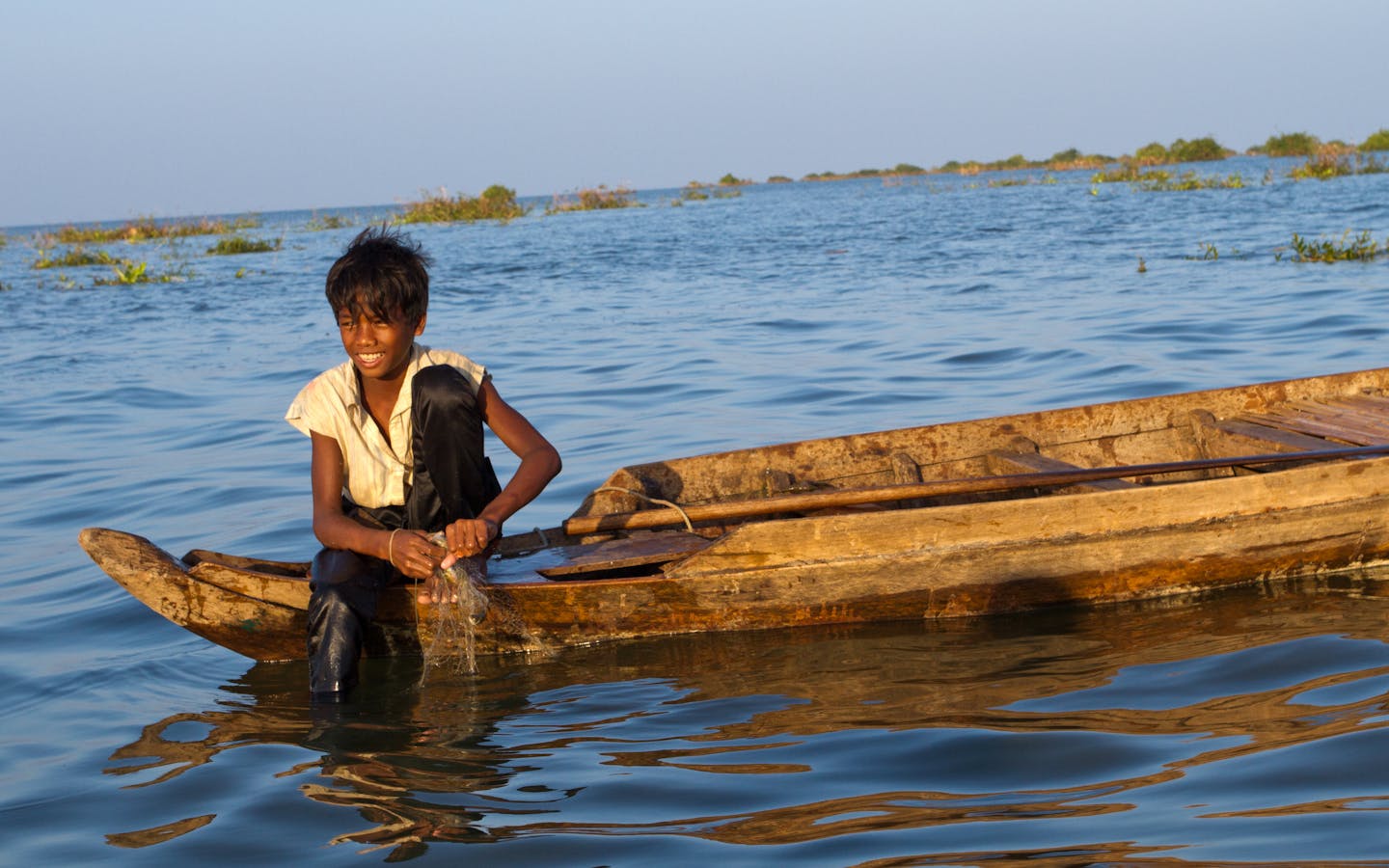Fresh water is the lifeblood of our planet, and freshwater ecosystems connect people with the resources they need to thrive. But when rivers, lakes and wetlands are degraded, their ability to provide reliable supplies of clean water — and to support the species on which millions of people depend — is threatened.
The planet’s freshwater ecosystems are in crisis: Research found that populations of monitored freshwater species have fallen by 84 percent and nearly one-third of wetland ecosystems have been lost since 1970 due to human activities that degrade habitats and decrease water quality.
But despite their vital contributions to humans and biodiversity, freshwater ecosystems receive only a small percentage of the funding dedicated to nature conservation, explained Robin Abell, a co-author of a recent review of these findings published in the journal Science, who leads Conservation International’s freshwater work.
“Freshwater ecosystems connect headwaters with oceans, land with water and people with the resources they need to thrive,” Abell said. “However, they have historically been ignored during the development of conservation initiatives such as protected areas and other management interventions.”
“Freshwater and terrestrial conservation need to go hand-in-hand to receive the full suite of benefits that nature can provide,” she said. “This will require strong policy that recognizes the connections between terrestrial and freshwater systems and that treats those systems as equal in importance.”
What Are the Issues?
Demand for fresh water is outstripping supply. Many water systems around the world are currently overtaxed, and some are already very close to running dry: The city of Cape Town, South Africa barely averted "Day Zero," when the city's taps were expected to be turned off. According to one estimate, by 2030 our need for water will be 40 percent greater than our reliable water supplies.
Agriculture, industrial processes, untreated waste and degraded lands are leading causes of pollution in freshwater systems. Poor water quality threatens freshwater species, affects fisheries all the way to coasts, increases water treatment costs and poses risks to human health.
Around the world, climate change is already affecting freshwater systems, as droughts and floods occur with greater frequency and intensity. Degraded ecosystems — and the species that live in them — are less resilient to these climate impacts, and communities that depend on the services provided by healthy freshwater ecosystems are becoming increasingly vulnerable.
Our Solutions
We work to protect and restore the freshwater ecosystems around the world that supply critical services to the people who depend on them most. Grounded in sound science, our projects offer innovative solutions that can serve as models for conservation anywhere on Earth. Given the link between nature and human well-being, we build bridges between conservation and development, providing leaders at all levels with the information they need to understand the true value of nature’s benefits.
-
Freshwater Health Index
The Freshwater Health Index, a tool developed by Conservation International, measures the overall condition of freshwater ecosystems — and their capacity to support healthy, economically sustainable human populations.
© Pete Oxford/iLCP -
Inland fisheries
We work to secure inland freshwater fisheries, which provide food for billions of people. For more than a decade, we have worked to ensure that Cambodia’s Tonle Sap Lake — one of the most productive inland fisheries in the world — can continue to support the livelihoods of millions.
© CI/photo by Sophak Sett -
WASH in Watersheds
Conservation International is working to link conservation with water, sanitation and hygiene (WASH) services to enhance land and water stewardship. With the help of our partners, we are producing tools to design, coordinate and implement projects with benefits for people and nature.
© Kyle Obermann -
Green infrastructure
Natural areas help to ensure reliable flows of clean water to communities — from rural villages to major cities. We work to restore “green” infrastructure, such as forests, floodplains and wetlands, and integrate it with conventional “gray” infrastructure, like dams and water treatment facilities.
© Trond Larsen
Featured Publications
COLOMBIAN HIGH MOUNTAINS: The Case of the Chingaza-Sumapaz-Guerrero Paramos
COLOMBIAN HIGH MOUNTAINS: The Case of the Chingaza-Sumapaz-Guerrero Paramos
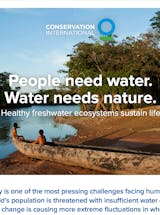
Freshwater Overview
Freshwater Overview
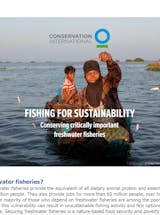
Freshwater Fisheries at CI
Freshwater Fisheries at CI
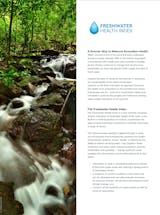
Freshwater Health Index Overview
Freshwater Health Index Overview
Tonle Sap – Mekong Factsheet
Tonle Sap – Mekong Factsheet
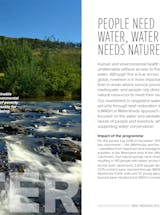
Conservation South Africa: People Need Water, Water Needs Nature
Conservation South Africa: People Need Water, Water Needs Nature
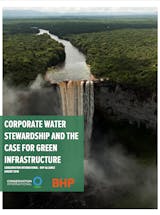
Corporate Water Stewardship and the Case for Green Infrastructure
Corporate Water Stewardship and the Case for Green Infrastructure
Related conservation news from the field
Related peer-reviewed science
You can also help if you ...
‘I’m something they just take for...
Fresh water is the lifeblood of the planet. No one can survive without it. Now, it has a voice.
